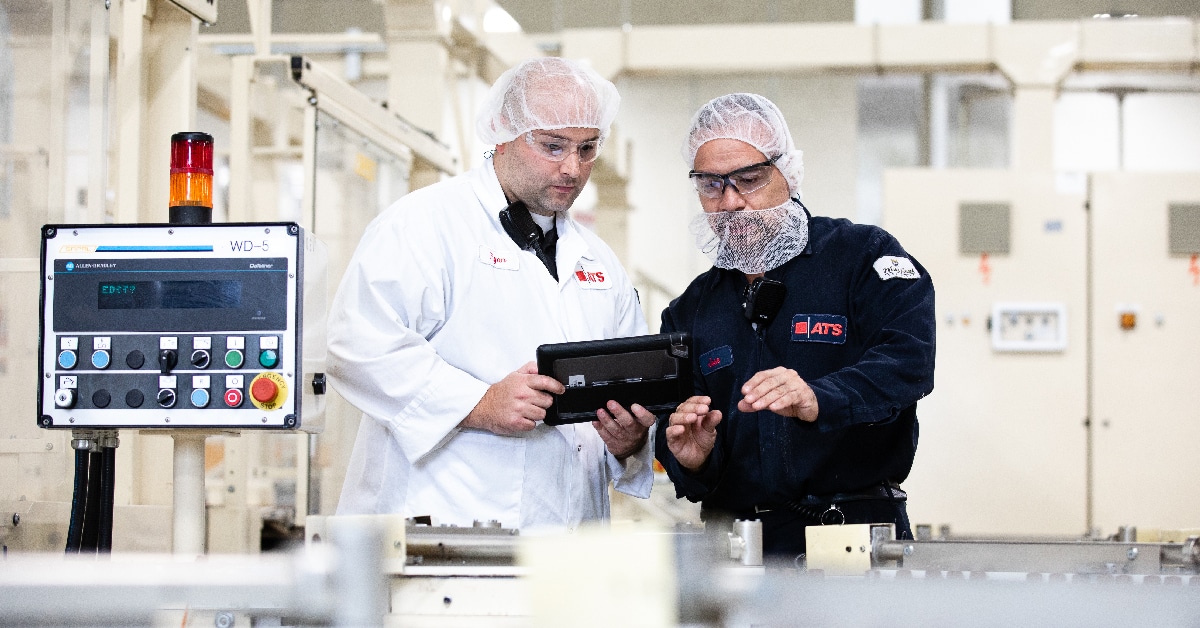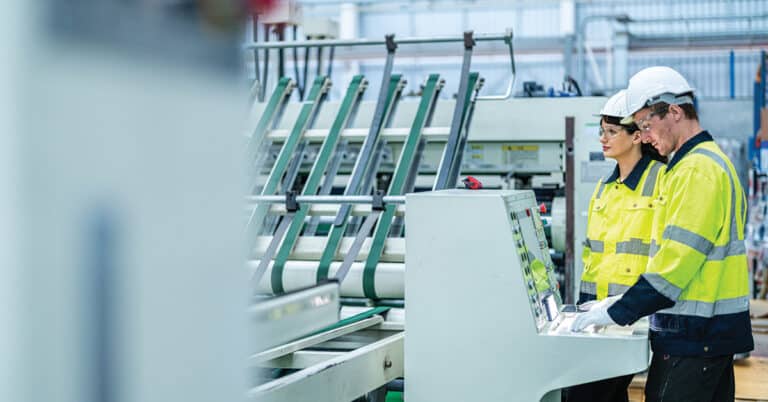In manufacturing, operational reliability starts with skilled maintenance professionals. The Certified Maintenance and Reliability Professional (CMRP) certifications validate the expertise needed to keep equipment running efficiently and reduce costly downtime. For manufacturers, hiring CMRP-certified talent means gaining confidence in their team’s ability to manage assets, prevent failures, and maintain productivity. Understanding what the certification entails—and the value it brings—is essential for any organization focused on performance, uptime, and continuous improvement. Manufacturers aiming to optimize uptime and performance should understand the value CMRP-certified professionals bring—from their training to their impact on reliability.
What is CMRP certification?
The Society for Maintenance and Reliability Professionals (SMRP) provides the CMRP certification as a means of validating the skills and abilities of maintenance and reliability leaders. This American National Standards Institute-accredited certification is recognized as one of the leading credentials globally for these professionals, and is used to attest their knowledge and credibility when it comes to mission-critical areas such as asset management, reliability and maintenance excellence.
According to the SMRP, the CMRP certification covers what the organization considers the five pillars of maintenance and reliability:
- Business and management
- Manufacturing process reliability
- Equipment reliability
- Organization and leadership
- Work management
The CMRP certification is designed for maintenance and reliability professionals at all levels, meaning it can be held by technicians, engineers and managers.
Why CMRP matters in manufacturing
Ensuring reliable operations is critical in the manufacturing sector, as downtime can have serious impacts on production. A single equipment failure can trigger a chain reaction—slowing output, increasing expenses and eroding customer trust. Having CMRP-certified professionals on a maintenance team gives manufacturers peace of mind for several reasons.
First and foremost, it means the individuals who hold the certification have been vetted and verified that they actually hold the requisite expertise they need to make a difference. Holding CMRP certification means they can be trusted to deliver an expected standard of competency and knowledge that is recognized across the industry. It also means the professionals demonstrated a commitment to continuous improvement and development, which can be very reassuring for manufacturers concerned about keeping their knowledge base from becoming stagnant. In total, employers benefit from higher workforce competency and better maintenance practices that result in less downtime, higher OEE and extended asset lifecycles.
CMRP eligibility and requirements
Practically any professional involved in maintenance, reliability or physical asset management is eligible for a CMRP certification. Although there are no strict requirements in terms of the degree a candidate must hold, most typically have existing backgrounds in engineering, maintenance management or operations. On-the-job experience is recommended but is not necessary, as the certification is based on passing an examination.
What does the CMRP exam cover?
Candidates preparing for the CMRP exam should be prepared to demonstrate their knowledge in topics related specifically to the SMRP’s Body of Knowledge. This is directly connected to the five pillars mentioned earlier. Some examples of topics covered in the exam include developing maintenance strategy, failure analysis and root cause analysis, leadership and workforce management, and managing spare parts or storeroom optimization.
The test is administered digitally on a computer and consists of approximately 110 multiple-choice questions. The time limit for the examination is roughly two and a half hours under most circumstances.
Benefits of CMRP certification
Earning CMRP certification brings a wealth of benefits to the professionals who earn it as well as their employers. Not only do the maintenance and reliability technicians gain increased recognition and better career opportunities, but they also have a competitive edge over other job candidates thanks to their certification. Employers benefit from CMRP certification because it means they have team members who have verifiable skills and knowledge of best practices and global standards. The expertise and know-how these individuals bring help create a manufacturing environment that experiences less downtime, higher efficiency and reduced maintenance costs.
CMRP vs. other maintenance certifications
There are many different types of certifications a professional can hold in the manufacturing sector, but although some of them may seem similar to CMRP they don’t cover the same ground. For example, Six Sigma also is concerned with eliminating waste. However, it’s focused primarily on business processes rather than physical asset management. The Certified Reliability Leader (CRL) certification is designed for those in leadership roles, focusing on the skills needed to manage and guide reliability teams. As a result, it’s less applicable to frontline technicians and engineers who are directly involved in day-to-day reliability tasks. Professional Engineers receive certification in specific engineering disciplines, while CMRP encompasses all elements of maintenance and reliability.
In general, CMRP is more of an all-encompassing certification pertaining to maintenance and reliability best practices. It’s important to note, however, that CMRP serves as a complement to these other credentials, rather than being a replacement for any of them.
How manufacturers benefit from CMRP-certified staff
When manufacturers emphasize CMRP certifications in their hiring processes for maintenance teams, they can experience a wide range of benefits that go well beyond the direct impact of adding verified expertise. For example, CMRP certifications contribute to enhanced credibility with customers and partners, providing a greater sense of confidence and comfort in the manufacturer’s capabilities. It also means these companies build stronger reliability cultures thanks to the extensive knowledge these professionals bring to the table. Because CMRP-certified representatives are focused on continuous improvement, they’re also in the best position to help employers grow through Industry 4.0, digital transformation and other forward-thinking initiatives.
Gain trusted expertise through ATS
As a globally recognized benchmark for maintenance and reliability expertise, CMRP ensures manufacturers have the knowledge and skills needed to keep their operations running as smoothly as possible. ATS provides our clients with the same level of confidence thanks to our expert maintenance services and reliability-driven strategies. To learn more about how ATS contributes to a more-productive and more-reliable manufacturing environment, reach out and speak with a member of our team today.






